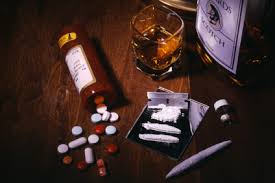Rehab Articles

Compulsive gambling and cocaine addiction have similar effects on decision making in the brain according to a new research study. In the study researchers from the University of Granada compared the differences and the similarities in the brain function and the psychological profile in individuals who suffered from either compulsive gambling or cocaine addiction. The compulsive gambling group showed abnormalities in brain function that were comparable to the abnormalities of the brain that were shown by those with a cocaine addiction. The brain areas affected in both groups involved the anterior cingulate and part of the prefrontal cortex, and these areas are known to provide impulse control in people. The ability of both groups to make good decisions were compromised by these abnormalities according to the researchers.
According to José César Perales and Ana Torres, the main investigators for the study, “these bad decisions affect the individuals’ ability to recognize and evaluate loss, even when this is not financial loss.” What the researchers found very interesting was that emotion seemed to make the problem worse and appeared to increase the poor decision making, and negative emotions had a larger impact than positive emotions. Loss of impulse control in both groups that were involved in the study were similar, regardless of whether the research subject was a compulsive gambler or a cocaine addict. Hopefully these findings will eventually lead to more effective treatment for both problems. Does this mean that both of these conditions are medical disorders though? What are your feelings on this?
Rehab Articles

Bulimia Nervosa is one of the eating disorders that can be extremely dangerous if left untreated, and there are many signs of this disorder that should not be ignored. This eating disorder involves binging, and the person with this disorder will consume large quantities of food in a short period of time. This is followed by the purge phase, and vomiting, extreme laxative use, and extensive and obsessive exercise may follow the binge period. The person may seem to be at a normal weight, but the binge and purge cycle will damage the health of the individual. In spite of their normal weight someone with Bulimia Nervosa will see themselves as overweight, and they may actually be disgusted or ashamed of their body image.
The most common signs of Bulimia Nervosa include:
-
Not eating meals with others, eating smaller than usual portions, or pushing food around on the plate without actually eating any
-
Exercising all the time, to an excessive degree
-
Dieting constantly even though a normal weight is maintained
-
Frequently complaining about being fat even though the individual is not overweight
-
Episodes of binge eating, large quantities of food suddenly disappearing, and the sudden appearance of many food wrappers and containers in the trash
-
Purging, frequent vomiting, or frequent laxative use
-
A tendency to go to the bathroom immediately after meals
-
Scarring on knuckles caused by induced vomiting
-
Wearing baggy clothing all the time
Do you or someone you know show any of the warning signs of Bulimia Nervosa? If so then treatment is available.
Rehab Articles

What causes alcoholism? The answer to this question is not clear cut, there are several possible factors that may be responsible and every alcoholic may have different contributing factors involved that cause their alcohol abuse. What causes alcoholism in one person may not have the same impact on another individual, and that is what makes treating alcohol abuse so difficult with a one size fits all program. The alcohol treatment program needs to have a customized treatment plan that takes into consideration the contributing factors in each individual case, otherwise the results may not be as effective and the risk of relapse can increase. What causes alcoholism? The risk factors listed below can contribute to this problem but each factor may not be relevant for some who need treatment.
-
Binge drinking
-
Drinking that starts at an early age
-
Drinking a steady amount on a regular basis over an extended period of weeks, months, or even years
-
A family history of alcohol abuse
-
Mental health problems, including depression, bipolar disorder, and schizophrenia
-
Drinking while taking certain types of medications
-
Social expectations
-
A culture of alcohol acceptance
What causes alcoholism? A combination of genetics, culture, social pressures, environmental considerations, and psychological factors. Until substance abuse treatment is received that addresses the causative factors in a specific case then a full and permanent recovery may not be possible. Knowing what causes alcoholism is the first step to treatment that actually works, because you must find out what causes alcoholism in your case and not the contributing factors for others.
Do you know what causes alcoholism in your case? If so what is it, and are you affected or is the alcoholic a friend or loved one?
Rehab Articles

Drug abuse risk factors can help determine whether you are likely to end up abusing drugs, and there are many of these risk factors that parents and family members should know. Some of the top drug abuse risk factors may be common knowledge, but others are far less known. Substance abuse affects individuals of all sexes, races, ages, economic backgrounds, and family histories. The risk factors involved can be different in every single case, so any treatment plan will need to discover the risk factors that an individual has before treatment and recovery can begin. The top drug abuse risk factors can include:
-
A family history of drug abuse and addiction. This is also true if the family history involves alcohol abuse or addiction.
-
The sex of the individual is also one of the drug abuse risk factors. Men are twice as likely to engage in drug use as women are, so males have a higher rate of substance abuse.
-
Drug abuse risk factors include having one or more mental illnesses or disorders. Depression, mania, schizophrenia, ADHD, PTSD, and other mental disorders may cause the individual to turn to drug abuse in order to self medicate their symptoms.
-
Peer pressure can be one of the big drug abuse risk factors, especially for teens and young adults.
-
Loneliness and anxiety are both drug abuse risk factors, and the individual may start to use in order to feel better or forget their social isolation.
-
Little family involvement and communication is another of the drug abuse risk factors.
-
Taking a drug that is highly addictive can cause addiction, even if the drug is only used once.
What other drug abuse risk factors do you know about?
Rehab Articles

Substance abuse rates for professionals are high when compared to the general population, but why is this? There are several reasons why professionals may turn to substance abuse. The long hours worked, the high levels of stress, and the need to be extremely competent and in control all contribute to the substance abuse rates for this group. Doctors, lawyers, pilots, and other professionals often spend long hours in the office or cockpit, and they are under a lot of pressure to be perfect and competent all the time. If a pilot makes a mistake lives can be lost, the same with doctors and nurses in the medical profession. If a lawyer errs then an individual could lose their freedom or their ability to recover a financial award from a court.
Substance abuse rates for professionals shows that this sector has a need for treatment opportunities, but the stigma attached to substance abuse is also an obstacle to substance abuse treatment. Professionals have spent many years receiving an education and training in their fields, and many fear that admitting they have a problem and seeking substance abuse treatment will make this effort a waste of time and money. The best substance abuse treatment facilities for professionals are those that offer complete confidentiality. Access to the outside world during treatment may also be necessary, so that a physician can still manage their medical office or a lawyer can stay on top of cases while getting the help that they need. Professionals need help with drug and alcohol use just as much as the general population, but this group is less likely to seek treatment for substance abuse due to the negative associations involved.



